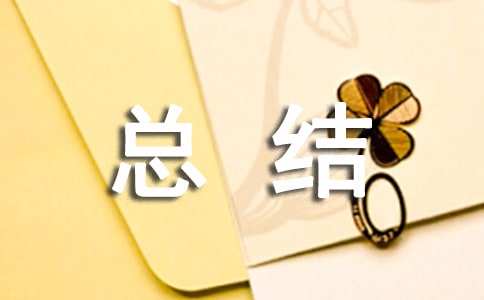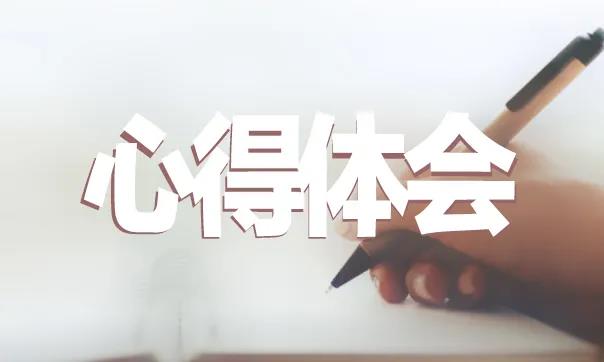英语语法知识大全第1篇地点状语从句1、地点状语从句由where,wherever引导。注意:where与where的区别:Where表特定的地点,而wherever表示非特定的地点。Wherever=下面是小编为大家整理的英语语法知识大全热门10篇,供大家参考。

英语语法知识大全 第1篇
地点状语从句
1、地点状语从句由where,wherever引导。
注意:where与where的区别:Where表特定的地点,而wherever表示非特定的地点。
Wherever=to/at any place where
2、地点状语从句与定语从句的区别:
Where引导定语从句时,从句前应有一个表示地点的名词作先行词;而状语从句前则无先行词。
原因状语从句
引导词:because, since,as, now that, not that…, but that…, seeing that, considering that, in that
注意:for也可以表示原因,属并列连词,但不是说明直接原因,而是对某种情况加以推断,用于表示补充说明理由。
目的状语从句
引导词:so, so that, in order that, that, to the end that(以便,为了),in case,for fear that,lest(以免,以防),
目的状语从句中通常有情态动词can,could,may,might,should,would等。
注意:1、in case 还可表示“万一,假如”。
2、目的状语从句可以用so as to, in order to 等不定式代替,但主句和从句的主语必须一致。
结果状语从句
引导词:so...that(如此...以至于),such...that(如此...以至于...),so that(结果是),with the result that(所以,结果是)
注意:
(1)so...that与such...that的区别
So+形容词such+a/an+形容词+单数名词
So+形容词+a/an+单数名词such+形容词+复数名词
So+副词such+形容词+不可数名词
So many/few+复数名词
So much/little+不可数名词
(2)so that引导的目的状语从句与so that 引导的结果状语从句
目的状语从句一般使用情态动词,结果状语从句一般不使用情态动词;
结果状语从句常常用逗号与主句分开。
(3)so...that与so...as;such...that与such...as
So...that/such...that为结果状语从句;so...as/such...as为定语从句。
英语语法知识大全 第2篇
clothes, cloth, clothing
clothes统指各种衣服,谓语动词永远是复数, cloth指布,为不可数名词 clothing 服装的总称,指一件衣服用a piece of, an article of
incident, accident
incident指小事件, accident指不幸的事故He was killed in the
amount, number
amount后接不可数名词, number后接可数名词 a number of students
family, house, home
home 家,包括住处和家人,house房子,住宅,family家庭成员. My family is a happy
sound, voice, noise
sound自然界各种各样的声音,voice人的嗓音,noise噪音I hate the loud noise
photo, picture, drawing
photo用照相机拍摄的照片,picture可指相片,图片,电影片,drawing画的画 Let"s go and see a good
vocabulary, word
vocabulary词汇,一个人拥有的单词量,word具体的单词He has a large
population, people
population人口,人数,people具体的人 China has a large
weather, climate
weather一天内具体的天气状况,climate长期的气候状况 The climate here is not good for
road, street, path, way
road具体的公路,马路,street街道,path小路,小径,way道路,途径
take this road; in the street, show me the way to the
course, subject
course课程(可包括多门科目),subject科目(具体的学科)a summer course
custom, habit
custom传统风俗,习俗,也可指生活习惯,后接to do, habit生活习惯,习惯成自然,后接of I"ve got the habit of drinking a
cause, reason
cause 指造成某一事实或现象的直接原因,后接of sth,reason用来解释某种现象或结果的理由,后接for the reason for being late
exercise, exercises, practice
exercise运动,锻炼(不可数),exercises练习(可数),practice(反复做的)练习 Practice makes
class, lesson
作"课"解时,两者可以替换.指课文用 指班级或全体学生用 lesson 6; class 5
speech, talk, lecture
speech指在公共场所所做的经过准备的较正式的演说,talk日常生活中的一般的谈话,讲话,lecture学术性的演讲,讲课 a series of lecture on…
officer, official
officer部队的军官,official政府官员 an army officer
work, job
二者均指工作。work不可数,job可数 a good job
couple, pair
couple主要指人或动物,pair多指由两部分组成的东西 a pair of trousers
country, nation, state, land
country侧重指版图,疆域,nation指人民,国民,民族,state侧重指政府,政体,land国土,国家 The whole nation was sad at the
cook, cooker
cook厨师,cooker厨具 He is a good
damage, damages
damage不可数名词, 损害,损失; damages复数形式, 赔偿金 $900 damages
police, policeman
police警察的总称,后接复数谓语动词,policeman 指某个具体的警察 The police are questioning everyone in the
problem, question
problem常和困难连系,前面的动词常为think about, solve, raise,question常和疑问连系,多和ask, answer连用
man, a man
man人类,a man一个男人 Man will conquer
chick, chicken
二者均可指小鸡,chicken还可以当鸡肉 The chicken is
telegram, telegraph
当电报解时,telegram指具体的,telegraph指抽象的 a telegram, by telegraph
trip, journey, travel, voyage
travel是最常用的,trip指短期的旅途,journey指稍长的旅途,voyage指海上航行 a three-day trip
sport, game
sport多指户外的游戏或娱乐活动,如打球,游泳,打猎,赛马等;game指决定胜负的游戏,通常有一套规则 His favorite sport is
price, prize
price价格,prize奖,奖品,奖金 win the first prize The price is
a number of, the number of
a number of许多,谓语动词用复数。the number of…的数目,谓语动词用单数。The number of students is
in front of, in the front of
in front of范围外的前面,in the front of范围内的前面 In the front of the room sits a
of the day, of a day
of the day每一天的,当时的,当代的, of a day暂时的,不长久的 a famous scientist of the day
three of us, the three of us
three of us我们(不止三个)中的三个,the three of us我们三个(就三个人)The three of us---Tom, Jack and I went to the
by bus, on the bus
by bus表手段,方式,不用冠词,on the bus表范围 They went there by
for a moment, for the moment
for a moment 片刻,一会儿,for the moment暂时,一时 Thinking for a moment, he
next year, the next year
next year将来时间状语,the next year过去将来时间状语 He said he would go abroad the next
more than a year, more than one year
more than a year一年多,more than one year超过一年(两年或三年等)
take advice, take the(one"s) advice
take advice征求意见,take the advice接受忠告 He refused to take the advice and failed
take air, take the air
take air传播,走漏,take the air到户外去,散步 We take the air every
in a word, in words
in a word总之,一句话, in words口头上 In a word, you are
in place of, in the place of
in place of代替,in the place of在…地方 A new building is built in the place of the old
in secret, in the secret
in secret秘密地,暗自地,偷偷地,一般用作状语;in the secret知道内情,知道秘密,一般用作表语 My mother was in the secret from the
a girl, one girl
a girl可泛指所有女孩, one girl一个女孩 Can one girl carry such a big box?
take a chair, take the chair
take a chair相当于sit down坐下,take the chair开始开会
go to sea, by sea, by the sea
go to sea当海员,出航,by sea乘船,由海路, by the sea在海边 go by sea
the doctor and teacher, the doctor and the teacher
the doctor and teacher指一个人,既是医生又是老师,the doctor and the teacher两个人,一个医生和一个老师 the doctor and teacher is
in office, in the office
in office在职的,in the office在办公室里 He is in office, not out of
in bed, on the bed
in bed卧在床上,on the bed在床上 The book is on the He is ill in
in charge of, in the charge of
in charge of管理,负责照料, in the charge of由……照料 He is in charge of the The matter is in the charge of
in class, in the class
in class在课上,in the class在班级里 He is the best student in the
on fire, on the fire
on fire着火,on the fire在火上 Put the food on the The house is on
out of question, out of the question
out of question毫无疑问的,out of the question不可能的
a second, the second
a second又一,再一,the second第…… He won the second
by day, by the day
by day白天,by the day按天计算 The workers are paid by the
the people, a people
the people指人,a people指民族 The Chinese is a peace-loving
it, one
it同一物体,one同类不同一 I lost my I have to buy a new
that, this
that指代上文所提到的,this导出下文所要说的 I was That"s why…
none, nothing, no one
none强调有多少,nothing, no one强调有没有,nothing指物,no one指人
--- How many…/How much…? ---
anyone, any one
anyone指人,不能接of,any one指人物均可,可接of any one of you
who, what
who指姓名或关系,what指职业或地位 What is your dad? He is a
what, which
what的选择基础是无限制的,which在一定范围内进行选择 Which do you prefer, bananas or apples?
other, another
other后接名词复数,another后接名词单数 other students, another student
not a little, not a bit
not a little非常,not a bit一点也不 I"m not a bit 我一点儿也不累。
many, much, a lot of
many和可数名词连用,much和不可数名词连用,a lot of可数,不可数均可,但不用于否定句 I haven"t many
much more…than, many more…than
much more…than后接形容词或不可数名词,many more…than后接可数名词 many more people, much more water, much more beautiful
no, not
no=not a/any no friend=not a/any friend no water=not any water
no more than, not more than
no more than相当于only,仅仅,只有,not more than 至多,不超过
majority, most
majority只能修饰可数名词,most可数不可数均可 the majority of people
by oneself, for oneself, to oneself, of oneself
by oneself单独的,独自的,for oneself为自己,to oneself供自己用的,of oneself 自行的,自动的 The door opened of
at all, after all
at all根本,全然, after all到底,毕竟 After all he is a
tall, high
tall常指人或动物,high常指物体 He is
fast, quickly
fast侧重于指人或物体具有运动速度快的特点,quickly侧重指某事完成或发生的快 run fast, answer the question quickly
high, highly
high具体的高,highly抽象的高,高度的 think highly of
healthy, healthful
healthy健康的,健壮的,healthful有益于健康的 healthful exercise
sleeping, asleep, sleepy
sleeping正在睡觉,asleep睡着,熟睡,只能做表语,sleepy困的,有睡意的 a sleeping baby The baby is I"m
gold, golden
gold指真金制品,golden指金色的,但金鱼用gold fish a gold ring
most, mostly
most用于表感受的肯定句中,相当于very,当大部分,大多数解时是形容词或名词,mostly大部分,是副词 most people, the people are mostly…
just, very
just表强调时是副词,作状语,very表强调时是形容词,用作定语 the very man, just the man
wide, broad
wide侧重于一边到另一边的距离,broad侧重于幅面的宽广broad shoulders
real, true
real真的,真实的,指的是事实上存在而不是想象的,true真的,真正的,指的是事实和实际情况相符合 real gold, a true story
respectful, respectable
respectful尊敬,有礼貌,respectable可敬的,值得尊敬的 be respectful to the aged
outwards, outward
二者均可用作副词,表示向外,外面,outward还可用作形容词 an outward voyage
pleasant, pleased, pleasing
pleasant常用作定语,pleased, pleasing常用作表语,pleased主语常为人,pleasing主语常为物 a pleasant trip The trip is
understanding, understandable
understanding明白事理的,能体谅的,understandable 可理解的,能够懂的 an understanding girl, an understandable mistake
close, closely
close接近,靠近,closely紧紧地,紧密地 closely connected, stand close
ill, sick
ill做表语,sick定,表均可 a sick boy
good, well
good形容词,well副词,但指身体状况是形容词 He is well
quiet, silent, still
quiet安静的,可以发出小的声音,silent不发出声音,但可以动,still完全不动,完全无声响 He stand there 他站在那儿,一动不动,也不说话。
hard, hardly
hard努力,hardly几乎不 work hard I can hardly believe
able, capable
able与不定式to do连用,capable与of连用 He is capable of doing…
almost, nearly
二者均为"几乎,差不多" 和否定词连用用almost almost nobody
late, lately
late迟,晚,lately最近,近来 I haven"t seen him
living, alive, live, lively
living, alive, live均为活着的,living定表均可,alive定表均可,定语后置,live只能做定语,lively意为活波的 all the living people=all the people alive
excited, exciting
excited使人兴奋的,exciting令人兴奋的 I"m The news is
deep, deeply
deep具体的深,deeply抽象的深,深深地 deeply moved, dig deep
aloud, loud
aloud出声地,loud大声地 read aloud(出声地读)
worth, worthy
二者均为值得,worth后接doing,worthy后接to be done, of being done
It is worth = It"s worthy to be = It"s worthy of being
bad, badly
bad形容词,badly副词,不好,但与need, want, require连用为"很,非常" go bad I need the book
before long, long before
before long不久以后,long before很久以前 not long before = before long
quite, rather
quite完全地,相当于completely, rather修饰比较级 quite impossible
happy, glad
happy高兴,幸福,定表均可,glad高兴,只能做表语 a happy girl
instead, instead of
instead是副词,放在句首或句末,instead of是介词短语,放在句中He didn"t see a Instead he watched He watched TV instead of seeing a
too much, much too
too much 后接不可数名词,much too后接形容词 much too heavy
be about to, be going to, be to do
be about to表最近的将来,后面不接时间状语,be going to 侧重打算,想法,be to do侧重意志,计划,安排I"m to meet (含双方事先约好的意思)
raise, rise
raise及物动词,rise不及物动词 The sun rises in the
bring, take, carry, fetch
bring拿来,take带走,carry随身携带,fetch去回这一往返动作 fetch a box of chalk
spend, take, pay, cost
spend人做主语,花钱,花时间; spend…on doing sth; take物做主语,花时间; pay人做主语,花钱,pay for; cost物做主语,花钱
英语语法知识大全 第3篇
连词that, if, whether,连接代词what, which, who, whom, whose以及连接副词how, when, why, where可用来引导名词从句,充当主语、表语、宾语等。非正式文体中的宾语从句常省略that:
I think (that) he’ll be back in an 我认为他一小时后就会回来。
Who they are doesn’t matter 他们是谁没什么大关系。
Can you tell me where he is? 你能告诉我他在哪儿吗?
He asked me if/whether I knew 他问我是否认识约翰。
此外,that, which, who, whom, whose, when, why, where等还可以引导定语从句。
连词when, while, before, after, till/until, since, as soon as等引导时间状语从句:
She said hello to me when she saw 她看到我的时候,和我打了招呼。
I’ll wait here until you come 我将在这里等你回来。
连词if, unless引导条件状语从句;because, as, since引导原因状语从句:
I’ll help her if she asks me 如果她要求我,我就帮助她。
I won’t help her unless she asks me 除非她要求我,否则我不会帮她。
He didn’t come because he was 因为他病了,所以没来。
As he hasn’t appeared yet, we shall start without 既然他还没有出现,我们就先开始吧。
Since everybody is here, let’s 既然大家都到了,咱们就开始吧。
连词in order than, so that引导目的状语从句;so … that …引导结果状语从句:
I locked the door in order that we might continue our discussions (=I locked the door in order to continue our discussions ) 我把门锁上了,以便我们可以继续讨论而不受打扰。
The car ran so fast that I couldn’t see who was in 汽车跑得那么快,我没看清谁坐在里面。
连词than, as…as…, not as/so…as…用来引导比较状语从句:
He is better educated than his 他比他兄弟受的教育好。
He is as well educated as his 他和他兄弟受的教育一样好。
He is not as/so well educated as his 他没有他兄弟受的教育好。
连词although, though 引导让步状语从句;where, wherever 引导地点状语从句:
I’ll go wherever you 不管你去哪儿,我就去那儿。
Stay where you are! 原地别动!
Though/Although she is rich, she’s not 尽管她富有,但她并不幸福。
一般来说,连词性质的连接词连接两个分句或引导一个从句,两个分句或主从复合句之间用逗号连接。
二、副词性连接词
副词性质的连接词不能象连词一样分句或主从复合句之间用逗号连接。也就是说它们不能连接两个分句或引导从句。它们引导的句子与前面的句子之间要用分号或句号,而它们与引导的句子之间往往用逗号。副词性质的连接词在写作中常常使用,主要分为以下几类:
表示顺序的,如first, in the first place, then, finally, in the end等等。尤其要注意 如:
误:He graduated from college in 20XX, then he found a
正:He graduated from college in 20XX, and then he found a
He graduated from college in Then he found a
表示递进关系的,如in addition, what is more, furthermore, moreover等。注意in addition 与in addition to 的区别:in addition 是副词性质;而in addition to 是介词性质,后面必须接宾语。
表示转折关系的,如however, nevertheless, nonetheless, on the contrary, in contrast, 等等。要注意不要把however 当成连词。
英语语法知识大全 第4篇
英语语法是针对英语语言进行研究后,系统地总结归纳出来的一系列语言规则。英语语法的精髓在于掌握语言的使用。英语语法包括词语、时态、语态、语气、句子成分、句型结构等。
一般现在时:表示现在的状态、经常的或习惯性的动作、主语具备的性格和能力等。基本结构:主语+be/do+其他。
一般过去时:表示过去某个时间内(或某一段时间内)发生的动作或存在的状态,过去经常或反复发生的动作。基本结构:主语+动词的过去式或be的过去式+名词。
一般将来时:表示将要发生的动作、打算、计划或准备做某事。基本结构:主语+am/is/are+going to + do sth;主语+will/shall+do sth
一般过去将来时:立足于过去某一时刻,从过去看将来,常用于宾语从句中。基本结构:主语+was/were+going to+do+其它;主语+would/should+do+其它。
现在进行时:表示现在(说话时)或当前阶段正在进行或发生的动作。基本结构:主语+be+doing+其它。
过去进行时:表示过去某段时间或某一时刻正在发生或进行的行为或动作。基本结构:主语+was/were+doing+其它。
将来进行时:表示将来某一时间正在进行的动作,或表示要在将来某一时间开始,并继续下去的动作。常用来表示询问、请求等。基本结构:主语+shall/will+be+现在分词+其它。
过去将来进行时:表示就过去某一时间而言,将来某一时刻或某一段时间正在进行的动作,主要用于宾语从句中,尤其多用于间接引语中。基本结构:should/would+be+现在分词。
现在完成时:过去发生或已经完成的动作对现在造成的影响或结果,或从过去已经开始,持续到现在的动作或状态。基本结构:主语+have/has+(过去分词)+其它。
过去完成时:以过去某个时间为标准,在此以前发生的动作或行为,或在过去某动作之前完成的行为,即“过去的过去”。基本结构:主语+had+(过去分词)+其它。
英语语法知识大全 第5篇
常见集合名词
1. family(家庭),team(队),class(班),audience(听众)等
其用法特点为:若视为整体,表示单数意义;若考虑其个体成员,表示复数意义。比较:
This class consists of 45 pupils. 这个班由45个学生组成。
This class are studying English now. 这个班的学生在学习英语。
2. cattle(牛,牲畜),people(人),police(警察)等
其用法特点为:只有单数形式, 但却表示复数意义,用作主语时谓语用复数;不与 a(n) 连用,但可与the连用(表示总括意义和特指)。如:
People will laugh at you. 人们会笑你的。
The police are looking for him. 警察在找他。
For these many cattle were killed. 就因为这个原因宰了不少牲畜。
注:表示牲畜的头数,用单位词 head(单复数同形)。如:three head of cattle 3头牛,twenty (head of )cattle 20头牛。
3. goods(货物), clothes(衣服)等
其用法特点是:只有复数形式(当然也表示复数意义,用作主语时谓语也用复数),但通常不与数词连用。如:
Such clothes are very expensive. 那样的衣服很贵。
To whom do these goods belong? 这些书是谁的?
4. baggage / luggage(行李), clothing(衣服), furniture(家具), machinery(机器), poetry(诗), scenery(风景), jewelry(珠宝),equipment(设备)等
其用法特点为:是不可数名词,只用单数形式,不用不定冠词 (当然更不能用数词),没有复数形式。如:
Our clothing protects us from [against] the cold. 我们的衣服可以御寒。
Have you checked all your baggage? 你所有行李都托运了吗?
特别提醒:machinery, poetry, jewelry, scenery 相应的个体可数名词是 machine, poem, jewel, scene。如:a poem / a piece of poetry 一首诗,many machines / much machinery / many pieces of machinery 许多机器。
5. hair(头发,毛发)
指全部头发或毛发时,为集合名词(不可数);指几根头发或毛发时,为个体名词(可数)。如:
My hair has grown very long. 我的头发已长得很长了。(D21)
The police found two hairs there. 警察在那儿找到了两根头发。(D23)
6. mankind(人类)
是一个不可数的集合名词,不用复数形式,也不连用冠词。如:
This is an invention that benefits mankind. 这是一项造福人类的发明。
Mankind has its own problems. 人类有自己的问题。
特别提醒:mankind 表示“人(类)”时,虽不可数,但有时却可以表示复数意义,尤其是当其表语是复数时。如:Mankind are intelligent animals. 人是理智的动物。
7. fruit(水果)
作为集合名词,它通常是不可数的。如:
He doesn’t not eat much fruit. 他不大吃水果。
He is growing fruit in the country. 他在农村种水果。
但是,当要表示种类时,它可视为可数名词,即a fruit 指一种水果,fruits 指多种水果。体会:
Some fruits have thick skins. 有些水果皮很厚。
The potato is a vegetable, not a fruit. 土豆是一种蔬菜,而不是一种水果
英语语法知识大全 第6篇
元宵节: Lantern Festival
刺绣:Embroidery
重阳节:Double-Ninth Festival
清明节:Tomb Sweeping Day
剪纸:Paper Cutting
书 法:
Calligraphy
对联:(Spring Festival) Couplets
象形文字:Pictograms/Pictographic Characters
雄黄酒:Realgar Wine
四合院:Siheyuan/Quadrangle
战国:Warring States
风水 :Fengshui/Geomantic Omen
昆曲 :Kunqu Opera
长 城 :The Great Wall
集体舞 :Group Dance
黄土高原 :Loess Plateau
红臼喜事:Weddings and Funerals
中秋节:Mid-Autumn Day
花鼓戏:Flower Drum Song
儒家文化:Confucian Culture
中国结:Chinese knotting
古装片:Costume Drama
武打片:Chinese Swordplay Movie
元宵:Tangyuan/Sweet Rice Dumpling (Soup)
越剧:Yue Opera
英语语法知识大全 第7篇
不定代词是高考的常考考点,有的不定代词考题出得比较灵活,不能死套规则,要注意结合语境来理解。如:
(1) “Is ____ here?” “No, Bob and Tim have asked for leave.”
A. anybody
B. everybody
C. somebody
D. nobody
若只是从表面来看,填空句是个疑问句,可能会误选A。但其实此题答案应选B,因为下文的答句说“只有Bob和Tim请假了”,这说明问句是在查人数,故用 Is everybody here? (大家都到齐了吗?)
(2) I agree with most of what you said, but I don’t agree with _____.
A. everything
B. anything
C. something
D. nothing
此句若从表面看,有可能误选B,因为填空句为否定句。但实际上答案为A,因为上文说“我同意他说的大部分内容”,这与下文的 but I don’t agree with everything(但并不是同意他说的所有内容)完全相符。
(3) “Do you have _____ at home now, Mary?” “No, we still have to get some fruit and tea.”
A. something
B. anything
C. everything
D. nothing
答案选C,句意为“玛丽,现在家里东西都准备齐了吗?”“还没有,我们还要买些水果和茶。”
(4) “If you want a necklace, I’ll buy one for you at once.” “Oh, no. A necklace is not _____ that I need most.
A. anything
B. something
C. nothing
D. everything
此题容易误选A,机械地认为:something 用于肯定句,anything 用于否定句或疑问句。但是,此题的答案是B,something 在此的意思不是“某种东西”,而是指“那种东西”或“这种东西”,即心中最想要的那种东西(相当于 the thing)。
英语语法知识大全 第8篇
引导的比较级:
(1)“as +形容词或副词原级+as+被比较对象”结构。例句:He studies as hard as 他像你一样学习努力。
(2)在否定句或疑问句中可用not so…as…. 例句:He can notrun so/as fast as 他没你跑得快。
引导的倒装句型:only +状语(或状语从句)位于句首时,句子部分倒装。
例句:
Only by diligence and honesty can one succeed 只有勤奋、正直,一个人在生活中才能成功。
注意:但 only修饰主语时,不倒装。例句:Onlythat girl knew how to work out the 只有那位女生知道怎样解那道题。
引导的虚拟语气:wish 后面的从句,当表示与事实相反的情况,或表示将来不太可能实现的愿望时,其宾语从句的动词形式为:
(1)表示对现在情况的虚拟:从句动词用过去式或过去进行式表示,be 的过去式用
I wish I knew the answer to the 我希望知道这个问题的答案。(可惜不知道。)
(2)表示对过去情况的虚拟:从句动词用had +过去分词。
I wish (that) I hadn’t wastedso much 我后悔不该浪费这么多时间。( 实际上已经浪费掉了。)
(3)表示对将来的主观愿望:谓语动词形式为“would/ should/ could/ might +动词原形”。在这种情况下,主句的主语与从句的主语不能相同,因为主句的主语所期望的从句动作能否实现,取决于从句主语的态度或意愿(非动作名词除外) 。
I wish it would stop 但愿雨能停止。
注意:若wish 后的宾语从句中用would,可以表示请求,通常意味着说话人的不快或不满。
例句:I wish you would be 我希望你安静一些。
形式宾语:和it 作形式主语一样, 我们常用it 来作形式宾语, 把真正的宾语从句放在句末, 这种情况尤其出现在带复合宾语的句子中。
例句:He has made it clear that he will not give 他表明他不会屈服。
+比较级,the+比较级表示“越越”。
例句:The more scared we are, the stronger the difficultywill 我们越害怕困难,困难就会变得越强大。
宾语从句:一般疑问句做宾语,引入if或whether
例句:
I want to know if he will join us in thediscussion?
原因状语从句:since引导的
例句:
Don’t eat too much sugarsince it is bad for your
否定词前置倒装:
例句:
Scarcely had he arrived at home when it began
虚拟条件句
英语语法知识大全 第9篇
虚拟语气
虚拟语气也是一个难点.所谓虚拟语气是表示说话人的"愿望、假设、猜测或建议,而不表示客观存在的事实.它通过句子的谓语动词的特殊形式来表示.现归纳如下:纯假设,用虚拟,动词时态退一级:条件句,分主从,主句谓语前加would (should,could,might);表愿望,用虚拟,wish后面接宾语(从句):现在过去与将来,动词时态退一级:提建议,用虚拟,宾语(从句)动词用(should)do:俩建议,三要求,再加坚持与命令(suggest,advise,demand,require,request,insist,order):It is time和eoukd rather,后接丛句用虚拟:部分主语从句中, 谓语用虚拟结构 (It is necessry /important/natural/natural/strange/strange that……should do). 下面举例说明:
A、If you came tomorrow,we would have the metting. (条件句虚拟)
B、Without air,there would be no living things.(同上)
C、We wish we had arrived there two hours earlier.(表示愿望虚拟)
D、He demanded that we (should)start right away.(表示建议虚拟)
E、It is(high)time that we left (should leave)now.(特殊从句虚拟)
F、I would rather you gave me the book.(同上)
G、It is necessary that we should clean the room everyday,(主语从句虚拟)
H、He speaks English so fluently as if he were English. (特殊从句虚拟)
英语语法知识大全 第10篇
放弃,抛
能力;才能
不正常的
& 在(或上)船、飞机、火车等
废除
流产
到(在)国外
突然的
不在,缺席
缺席,不在
绝对的
吸收
& 抽象(的)
荒谬的
丰富的
滥用,虐待
& 接近,进入
可接近的,可使用的
事故,意外的事
住宿,调节



